Time Waits for No One may refer to:
Time Waits for No One may refer to:

Thomas Alan Waits is an American musician, composer, songwriter, and actor. His lyrics often focus on the underbelly of society and are delivered in his trademark deep, gravelly voice. He began in the folk scene during the 1970s, but his music since the 1980s has reflected the influence of such diverse genres as rock, country, Delta blues, opera, vaudeville, cabaret, funk, hip hop and experimental techniques verging on industrial music. Per The Wall Street Journal, Waits “has composed a body of work that’s at least comparable to any songwriter’s in pop today. A keen, sensitive and sympathetic chronicler of the adrift and downtrodden, Mr. Waits creates three-dimensional characters who, even in their confusion and despair, are capable of insight and startling points of view. Their stories are accompanied by music that’s unlike any other in pop history.”

Keith Richards is an English musician, songwriter, singer and recording producer who is an original member, guitarist, secondary vocalist, and co-principal songwriter of the Rolling Stones. His songwriting partnership with the band's lead vocalist Mick Jagger is one of the most successful in history. His career spans over six decades, and his guitar playing style has been a trademark of the Rolling Stones throughout the band's career. Richards gained press notoriety for his romantic involvements and illicit drug use, and he was often portrayed as a countercultural figure. First professionally known as Keith Richard, by the early 1970s he had fully asserted his family name.
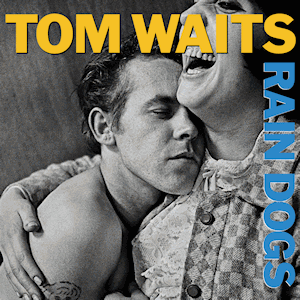
Rain Dogs is the ninth studio album by American singer-songwriter Tom Waits, released in September 1985 on Island Records. A loose concept album about "the urban dispossessed" of New York City, Rain Dogs is generally considered the middle album of a trilogy that includes Swordfishtrombones and Franks Wild Years.
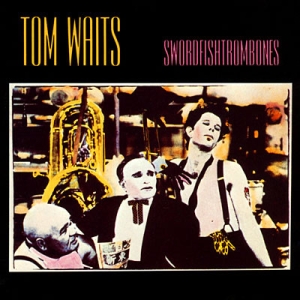
Swordfishtrombones is the eighth studio album by American singer-songwriter Tom Waits, released in 1983 on Island Records. It was the first album that Waits self-produced. Stylistically different from his previous albums, Swordfishtrombones moves away from conventional piano-based songwriting towards unusual instrumentation and a somewhat more abstract and experimental rock approach. The album peaked at No. 164 on the Billboard Pop Albums and 200 albums charts.
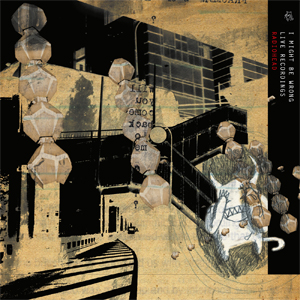
I Might Be Wrong: Live Recordings is a live album by the English rock band Radiohead, released on 12 November 2001 in the UK by Parlophone and a day later in the US by Capitol Records.
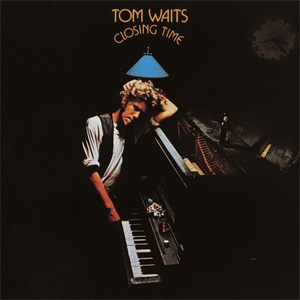
Closing Time is the debut album by American singer-songwriter Tom Waits, released on March 6, 1973, on Asylum Records. Produced and arranged by former Lovin' Spoonful member Jerry Yester, Closing Time was the first of seven of Waits' major releases by Asylum.
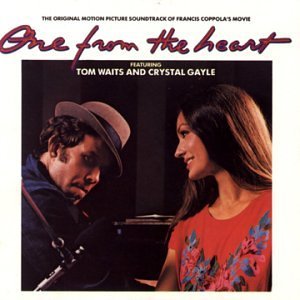
One from the Heart is a soundtrack album of Tom Waits compositions for the Francis Ford Coppola film of the same name. It was recorded from October 1980 to September 1981. It was during this period that Waits met his wife Kathleen Brennan, an employee at the studio where it was recorded. While the film was released in February, the soundtrack album release was delayed until October of 1982 due to a dispute between Columbia Records and Coppola's Zoetrope Studios.

Blue Valentine is the sixth studio album by singer and songwriter Tom Waits, released on September 5, 1978, on Asylum Records. It was recorded over the course of six sessions from July to August 1978 with producer Bones Howe. Rickie Lee Jones is pictured with Waits on the back cover.

Heartattack and Vine is the seventh studio album by Tom Waits, released on September 9, 1980, and his final album to be released on the Asylum label.

The Heart of Saturday Night is the second studio album by singer and songwriter Tom Waits, released on October 15, 1974, on Asylum Records. The title song was written as a tribute to Jack Kerouac. The album marks the start of a decade-long collaboration between Waits and Bones Howe, who produced and engineered all Waits' recordings until the artist left Asylum.
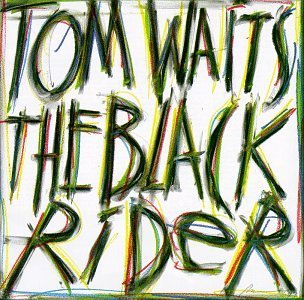
The Black Rider is the twelfth studio album by Tom Waits, released in 1993 on Island Records, featuring studio versions of songs Waits wrote for the play The Black Rider, directed by Robert Wilson and co-written by William S. Burroughs. The play is based on the German folktale Der Freischütz by Johann August Apel, which had previously been made into an opera by Carl Maria von Weber. It is about a clerk who makes a Faustian bargain for magic bullets, with tragic results. The play premiered on March 31, 1990, at the Thalia Theater in Hamburg, Germany. Its world English-language premiere occurred in 1998 at the Edmonton International Fringe Festival. Per the Los Angeles Times, "It’s most easily described as a Faustian musical-tragicomedy."

It's Only Rock 'n Roll is the 12th studio album by the English rock band the Rolling Stones, released on 18 October 1974 by Rolling Stones Records. It was the last album to feature guitarist Mick Taylor; the songwriting and recording of the album's title track had a connection to Taylor's eventual replacement, Ronnie Wood. It's Only Rock 'n Roll combines the core blues and rock 'n' roll–oriented sound with elements of funk and reggae. It's Only Rock 'n Roll reached number one in the United States and number two in the UK.

Some Girls is a studio album by the English rock band the Rolling Stones, released on 9 June 1978 by Rolling Stones Records. It was recorded in sessions held from October 1977 to February 1978 at Pathé Marconi Studios in Paris and produced by the band's chief songwriters – lead vocalist Mick Jagger and guitarist Keith Richards – with Chris Kimsey engineering the recording.
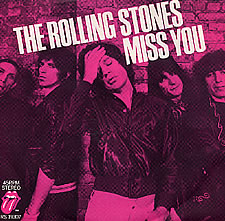
"Miss You" is a song by the English rock band the Rolling Stones, released on Rolling Stones Records in May 1978. It was released as the first single one month in advance of their album Some Girls. "Miss You" was written by Mick Jagger and Keith Richards.
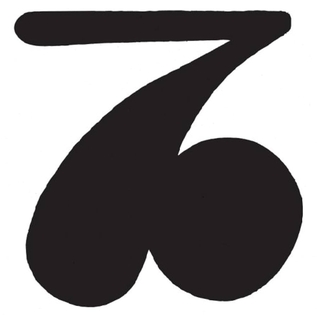
Sucking in the Seventies is the sixth official compilation album by The Rolling Stones, released in 1981. Serving as the successor to 1975's Made in the Shade, it covers material from the recording sessions of It's Only Rock 'n Roll (1974), Black and Blue (1976), Some Girls (1978) and Emotional Rescue (1980). Deviating from the standard practice of "greatest hits" albums, it features a mix of hit songs, remixes, alternate takes of album tracks, B-sides, and live recordings.

"Don't Let Me Be Misunderstood" is a song written by Bennie Benjamin, Horace Ott and Sol Marcus for American singer-songwriter and pianist Nina Simone, who recorded the first version in 1964. "Don't Let Me Be Misunderstood" has been covered by many artists. Two of the covers were transatlantic hits, the first in 1965 by the Animals, which was a blues rock version; and in 1977 by the disco group Santa Esmeralda, which was a four-on-the-floor rearrangement. A 1986 cover by new wave musician Elvis Costello found success in Britain and Ireland.
Who Are You is a 1978 album by The Who.

Time Waits for No One: Anthology 1971–1977 is a compilation album by The Rolling Stones released in 1979. It covers the period from Sticky Fingers in 1971 until Love You Live in 1977. Only two of ten single A-sides from the period are included—"Angie" and "Fool to Cry". It was released for the first time on CD in May 2019 in Japan, making use of the standard version of the title track and the censored version of "Star Star".
"True Love Waits" is a song by the English rock band Radiohead. Radiohead worked on it for over two decades before releasing it on their ninth album, A Moon Shaped Pool (2016).
Stones, or rocks, are naturally occurring masses of minerals.